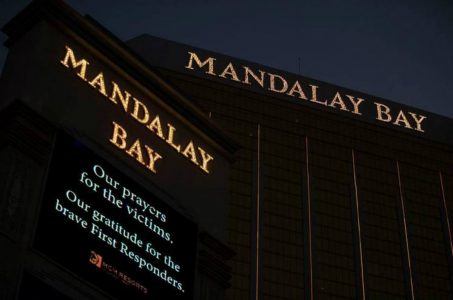Hard Times for City of Niagara Falls as Seneca Tribe Cuts Off Flow of Casino Payments
Posted on: January 24, 2018, 06:00h.
Last updated on: January 24, 2018, 04:33h.
The City of Niagara Falls in New York is preparing a worst-case-scenario budget, working under the assumption that the revenue-share payments it usually receives as host community of the Seneca Nation’s Niagara Casino will not be forthcoming in 2018.

The Senecas have withheld payments to the state, and by extension the city, for a year due to a contractual dispute. Tribal officials contend the casino is under no obligation to continue payments under the terms of its 2002 compact, which expired in 2016.
The 2002 agreement called for a seven-year rollover on expiration if there was no objection from either party, and so it did. But the Senecas claim there was no stipulation in 2002 that revenue share payments had to continue beyond 2016.
Deepening Dispute
The state begs to differ. In September, New York formally declared the Seneca Nation to be in violation of its gaming compact, delivering an 11-page demand for legally binding arbitration.
“The nation’s contention that it can unilaterally end paying the state contribution while continuing to enjoy the benefits of the compact has no basis in the compact, law or logic,” it said.
Caught in the middle is the City of Niagara, a community of around 50,000 people, which struggles to compete on an economic level with its more popular and prosperous Canadian namesake. Unemployment and crime rates are high, while around 60 percent of residents receive some kind of government assistance.
Financial Stress for City
The city relies on the Seneca payments for a large chunk of its finances. The amount the it receives from the operator is subject to variance because it is a cut of annual slot revenues. For example, it received $14.2 million in 2013, but only $12.3 million in 2016.
According to a September auditors’ report, the city has been using around $9 million of Seneca money each year since 2014 to fill gaps in its budget but it has done little to readjust its finances since payments stopped. That will now change, City Administrator Nick Melson told the Niagara Gazette.
You’re going to see a very different budget process this year,” Melson said. “Are we under fiscal stress? Absolutely. But we’re not going over a cliff. We’ve got time to make the changes we need to make.”
He added, “It behoves the city to plan on not having any money. Period.”
No time frame for a decision on the dispute between the state and Senecas exists and meanwhile the tribe could face separate legal action over allegations that it spied on the New York State Gaming Authority after a listening device was found in a space the tribe had rented to state officials.
Related News Articles
State-Run Casino in South Korea Admits to Scale of Its Own Corruption
Biggest Gaming Industry Legal Conflicts, Battles, and Outright Wars of 2018
Most Popular
LOST VEGAS: ‘Tony The Ant’ Spilotro’s Circus Circus Gift Shop
Las Vegas Overstated F1 Race’s Vegas Impact — Report
Mega Millions Reportedly Mulling Substantial Ticket Price Increase
Las Vegas Strip Stabbing Near The Strat Leaves One Man Dead
Most Commented
-
End of the Line for Las Vegas Monorail
— April 5, 2024 — 90 Comments -
Mega Millions Reportedly Mulling Substantial Ticket Price Increase
— April 16, 2024 — 6 Comments -
Long Island Casino Opponents Love New York Licensing Delays
— March 27, 2024 — 5 Comments -
Smart Video Poker Players Hamper Casino Profits, Says Study
— March 21, 2024 — 4 Comments
















No comments yet